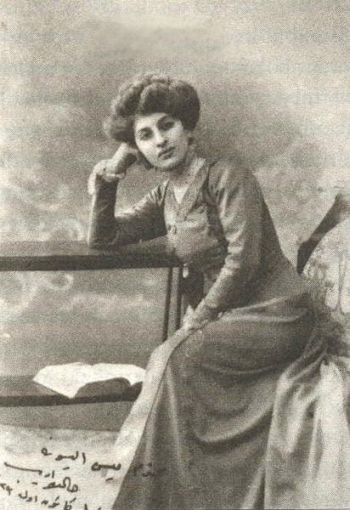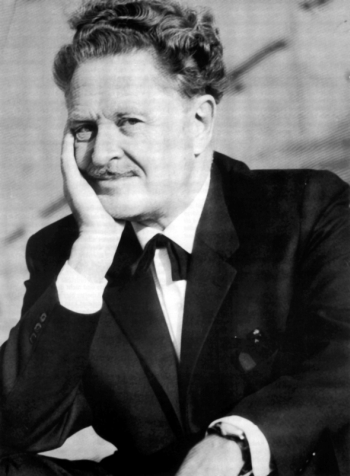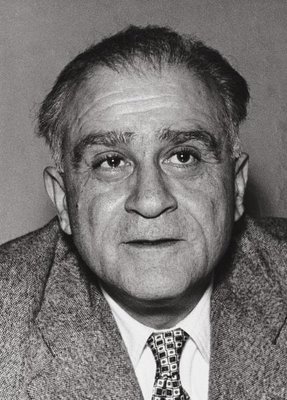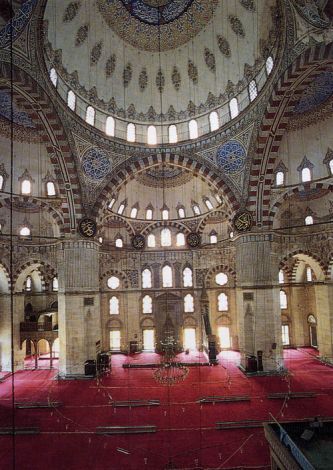TURKEY'S LITERARY LEGACY IN WORLD LITERATURE
Elizabeth Nolte
Turkish Cultural Foundation Fellow (2012-2013)
Ph.D. Candidate, Modern Turkish Literature, University of Washington
In 2006 the author Orhan Pamuk became the first Turk in any field to be awarded the Nobel Prize. This event reaffirmed Turkey’s position on the world literary map and underscored the importance of Turkish literature in the context of contemporary comparative and world literature studies. By placing modern Turkish literature in the international spotlight, the Nobel Prize helped to generate a new global audience for Pamuk and other Turkish authors. While this recent acclaim resulted in a resurgence of academic and public interest in the field, Turkish literature has a long legacy in world literature that reaches back to the founding of the nation in 1923 and spans diverse genres and literary styles.
Traditionally literature available in translation achieves higher circulation in world literature studies because it is accessible to many scholars in different countries, and the earliest works of Turkish literature are no exception. As English quickly became one of the primary languages of world literature studies, works translated into English also gained prominence. While the current Turkish literary canon in English is primarily restricted to select key authors, it still includes an array of works composed throughout the twentieth and twenty first centuries and continues to expand as more and more texts are translated.
One of the first authors to attract attention outside of Turkey was Halide Edib Adıvar (1882-1964). Adıvar, who was a prominent pioneer for women’s rights, professor, and politician, spent several years following the War for Independence in the United Kingdom and France and authored and published many of her works in English. Adıvar’s writings, which include The Shirt of Flame (1924), The Turkish Ordeal (1928), and The Clown and His Daughter (1935), range from memoir to psychological fiction, and her strong female characters bear traces of her own life and experiences. Through her synthesis of styles, themes, and genres, Adıvar captures the vibrancy of Turkey’s early Republican literature and history for an international audience.
Other notable Turkish authors who have contributed to Turkey’s literary legacy in world literature include Nazım Hikmet (1902-1963) and Yaşar Kemal (1923-). Known as the “romantic communist,” Hikmet spent years in prison or in exile during which time he composed countless pieces, including the epic poem Human Landscapes. While he produced plays, a novel, and a memoir, Hikmet’s legacy in world literature is as Turkey’s leading modern poet. His poetry, which was revolutionary for its free verse, imagery, and social realism, has been translated into numerous languages and still garners a considerable international following. What Hikmet represents for Turkish poetry in world literature, Yaşar Kemal does for the Turkish novel. Prior to Pamuk, Kemal was the most prominent and widely translated Turkish novelist and was considered a strong contender for the Nobel Prize. His most famous work, Memed, My Hawk (1961), belongs to the “village literature” movement that appeared in Turkey in the 1950s and focuses on the stark realities of peasant life. Kemal is celebrated for his unique poetic style that incorporates elements of Anatolian folk literature in the novels, epic novels, and children’s novels he has written throughout his highly prolific career.
These select authors represent but a few of the many who have contributed to Turkey’s vibrant literary scene and legacy within world literature and have been considered not only because of their position as international literary figures but also the availability of their works in translation. More recent additions include Latife Tekin (1957-), a novelist whose style draws from magical realism and folklore, and Elif Shafak, who is popular for her provocative fiction, as well as the growing number of German-Turkish authors whose works experiment in bilingualism and explore themes of the expatriate.
Legacy within world literature remains largely determined by the availability of translations, and it is important to note that one of the effects of Pamuk’s Nobel Prize has been an explosion of translation activity and interest in figures Pamuk cites as models for his own work. As a result, prominent authors in Turkish literary history who were little known outside of the country, such as the leading intellectual Ahmet Hamdi Tanpınar (1901-1962), are being introduced to a global audience, and their works are increasingly translated and studied.
In addition, recent scholarly studies, which include Azade Seyhan’s 2008 Tales of Crossed Destinies: The Modern Turkish Novel in a Comparative Context, Nergis Ertürk’s 2011 Grammatology and Literary Modernity in Turkey, and Erdağ Göknar’s 2013 Orhan Pamuk, Secularism, and Blasphemy: The Politics of the Turkish Novel, supplement a growing body of English language scholarship that seeks to provide a better understanding of Turkish literary history by presenting authors and texts not yet in translation and examining literature in connection to the historical and social forces of its production. As Turkish literature becomes more readily available and is studied not only according to author and text but also in the context of history, society, and culture, Turkey’s literary legacy in world literature will reflect the diversity and dynamism of modern Turkish literature.



H.Edip Adıvar Nazım Hikmet Ahmet Hamdi Tanpınar








